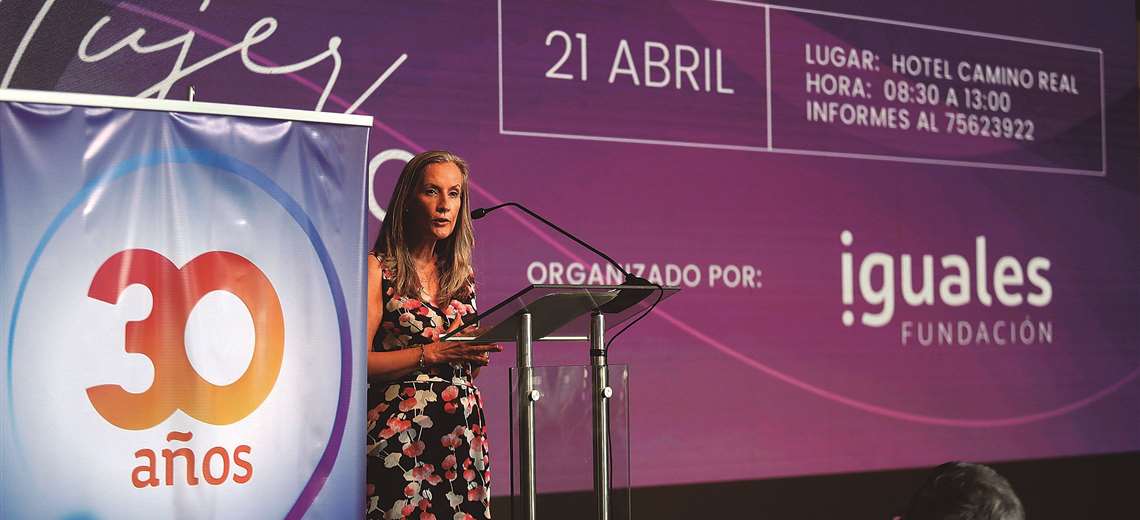“The active participation of women in the economic growth of countries” was the theme presented by María Fernanda Garza Merodio, current vice president of the International Chamber of Commerce World (ICC World), during her participation in the first International Forum “Women , Business and Development”, organized by the Iguales Foundation in Santa Cruz de la Sierra.
– What differences exist between the economies of the countries that have a greater active participation of women and those that do not?
According to recent world studies, in those countries in which women actively participate in the economy, mainly in the export sectors, they have greater protection because they participate in the formal economy.
The gender gap in highly exporting countries, with a greater participation of women, is greatly reduced at all levels, especially in poverty and health. Therefore, it is important that women are given the opportunity to participate in the formal economy. We believe that trade is that great opportunity and today more than ever, thanks to the digitization of trade.
The economic growth of Latin America, as well as that of Bolivia, has the face of a woman. The greatest proof of this is the interest we share in talking about these issues. Women have made some progress in the workplace, but we also face an uncomfortable reality: life in our homes and in society continues to be tremendously inequitable.
_ How did the pandemic impact the active participation of women in the global economy?
There are frightening data that reveal that the situation is not good. What we already knew prior to the pandemic, which in some way we let go, but the problem was exacerbated so much that we can no longer put it aside in all matters, the workload, at home, which is unpaid work , which recharges a lot on women. Also difficulties in the part of training and education.
We see with great concern that the girls of the world are not going back to school and that in the future is going to open a gap in this generation of girls and boys, who did not go to school and
that we still do not know and cannot measure its consequences.
There are countries that have had the resources to support their population, with treatments, vaccines and even financial support, but there are other countries that do not have the means to do so. We have also seen very large differences between workers who risk contagion and those who can work safely from home. Between large and medium-sized companies and small businesses, of which almost 40% are women.
Millions of MSMEs in the world are about to close or have already been forced to do so. Many of them that continue to operate are extremely vulnerable. No difference has been as significant as that between men and women. Both in matters related to paid and unpaid work.
_ That means there is a setback…
In terms of job positions held by women in the world, we are in the same place as in 1988. The decline has been of this magnitude in terms of the job position that women occupy today in the world.
In the particular case of the region and Bolivia, how is the situation?
A problem that many nations, thank God, have left aside is the issue of maternal and child death at the time of birth. But it still persists, despite the knowledge that exists in the world and that we must work on it.
Unfortunately, Bolivia is one of the countries in Latin America that still has many maternal and child deaths. This gives us an idea of the great amount of work that we have to do in the country to improve its conditions. This does not mean that we cannot, at the same time, work to bring these women to the training and connectivity they require in order to have opportunities to get out of poverty, which brings with it many risks.
_ In this task, in addition to the Government, should the private sector and universities participate, among other actors?
Of course, it is the challenge that we have today in the world. We are living in a situation with very serious problems, such as we have never seen before, at least not in our generation.
We have to understand that to face these challenges everyone has to work to overcome them. Because if we manage to work together, the governments, with the private initiative, with the academy and the citizens, we will be able to face them. If everyone remains in their place, working independently, we will not be able to beat them. We are going to take 500 years or more.


















